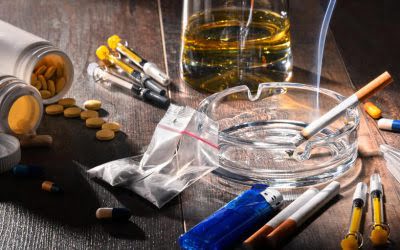It also includes binge drinking — a pattern of drinking where a male has five or more drinks within two hours or a female has at least four drinks within two hours. You’ll experience hormonal disruptions that affect ovulation, menstrual cycles, and egg quality. If you’re drinking heavily, you’re facing up to 44% reduced conception chances during vital fertility windows. Your reproductive system suffers from irregular periods, impaired ovulation, and decreased egg quality. Even moderate drinking (3-6 drinks weekly) can interfere with your fertility and increase risks during conception.
When Should Alcohol Withdrawal Be Treated by Medical Professionals?

Professional intervention becomes crucial when drinking behavior consistently puts you or others at risk, regardless of the consequences you’ve already experienced. Tolerance often develops alongside physical dependence, meaning your body begins to require alcohol to function normally. When tolerance reaches this level, you may experience withdrawal symptoms when alcohol isn’t present in your system, creating a cycle where drinking becomes necessary to avoid https://zecommentaires.net/what-is-sober-living-sober-living-homes-explained/ discomfort.
What to do when a habit becomes an addiction
- Calls to numbers marked with (I) symbols will be answered or returned by one of the treatment providers listed in our Terms and Conditions, each of which is a paid advertiser.
- Poor dental health becomes evident due to neglected oral hygiene from alcohol abuse.
- Shaking is a symptom of alcohol withdrawal, which is a very clear physical alcohol warning sign.
- The symptoms can range from mild to severe, depending on the “stage” of alcoholism.
- They may go to great lengths to conceal the amount or frequency of alcohol they consume.
If you have a family history of alcoholism, you’re more likely to develop addiction, but it’s not guaranteed. Your genes interact with environmental factors, meaning that having genetic risk doesn’t determine your fate – it just means you’ll need to be more cautious with alcohol use. Do you continue to drink heavily, even though you’re currently suffering through relationship, work or health problems? Beyond affecting your personal health and happiness, abusing alcohol can also affect those you love and care about.
- For individuals struggling with alcoholism, hiding or lying about their drinking habits is a common behavior.
- If you start drinking at ages 11-12, you’ll face a 15.9% chance of dependence within 10 years.
- These symptoms typically include tremors, excessive sweating, and severe insomnia.
- Although they can be intimidating or embarrassing to go to at first, these programs lend much-needed support and are a great way to learn how to live sober after detox treatment is done.
Physical Warning Signs of Alcoholism

All calls generated from Alaska, California, or Hawaii area codes will be answered by Refine Recovery, a paid advertiser. All calls generated from area codes in every other state will be answered by The Healing Place, a paid advertiser. Calls to numbers on a specific treatment center listing will be routed to that treatment center. Calls to any general helpline drug addiction treatment will be received by The Healing Place or Refine Recovery, both paid advertisers.

How Increased Tolerance Relates to Alcoholism?
- Without intervention, these conditions often progress to life-threatening complications requiring immediate medical attention.
- Recognizing the warning signs of alcoholism is crucial for early intervention and seeking appropriate help.
- It goes beyond occasional excessive drinking and becomes a pattern of behavior where alcohol takes precedence over other aspects of life.
Managing spider veins requires lifestyle changes like exercise to improve circulation and vein health. Genetics and aging are key risk factors that can accelerate spider vein formation in alcoholics. Heavy drinkers who regularly consume five or more drinks in one sitting face significantly higher risks of developing varicose veins. Emotional signs of alcoholism manifest as mood swings, irritability, anxiety, and angry outbursts at seemingly minor situations. These emotional changes occur because alcohol profoundly impacts brain chemistry, creating psychological dependence that heavy drinking alone doesn’t produce.
These mood fluctuations continue during early sobriety as your brain chemistry rebalances. The emotional instability often leads to social withdrawal, unpredictable behaviors, and difficulty maintaining personal relationships. These episodes occur when alcohol impairs your brain’s ability to form new memories, leaving gaps in your recollection of events. Blackouts represent dangerous levels of intoxication and suggest that your drinking has escalated beyond safe limits. If you or someone you know shows these signs, getting help from a professional is very important. Alcoholism is complicated, but it’s possible to get better with signs of alcoholism the right support.

